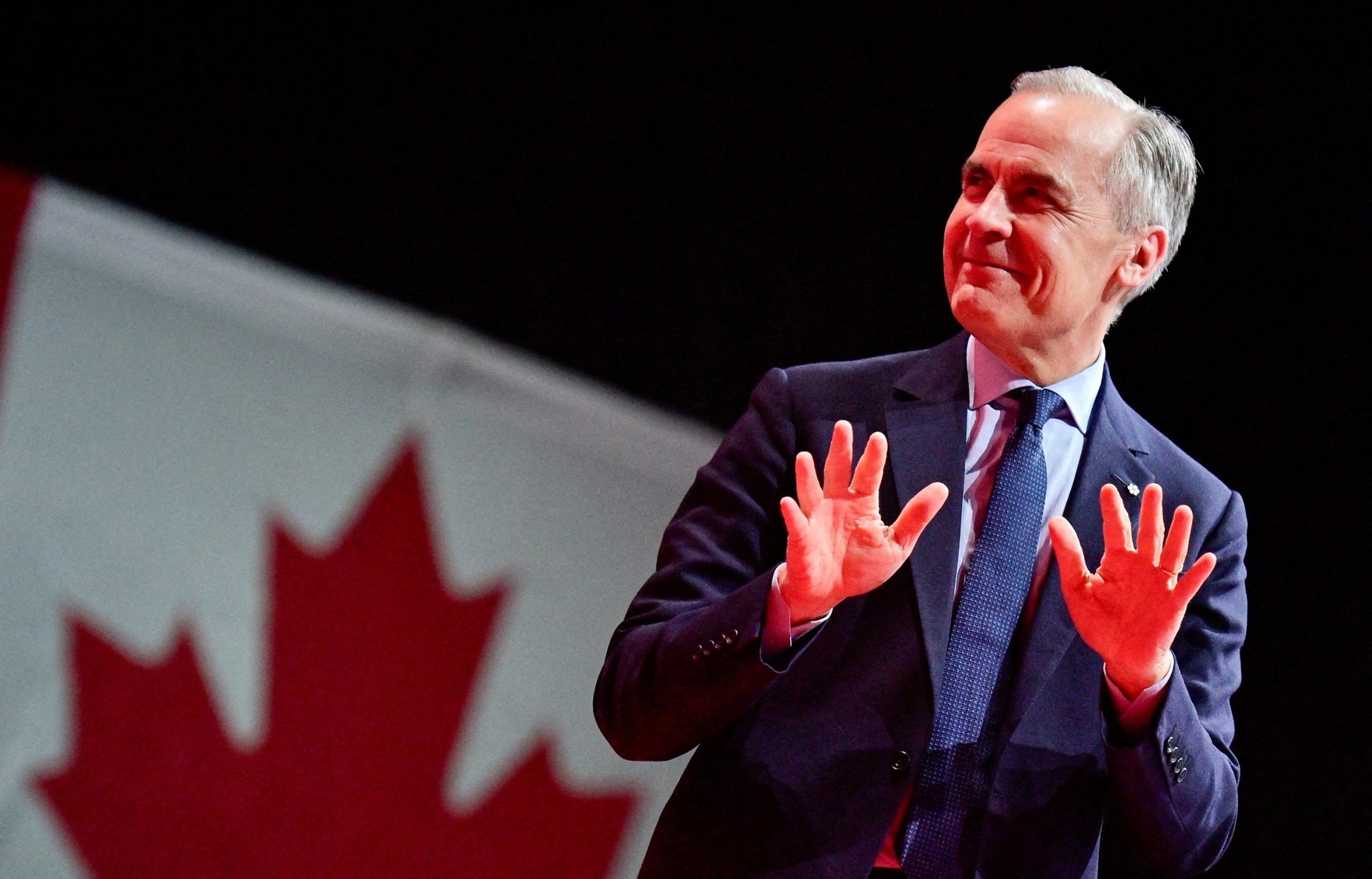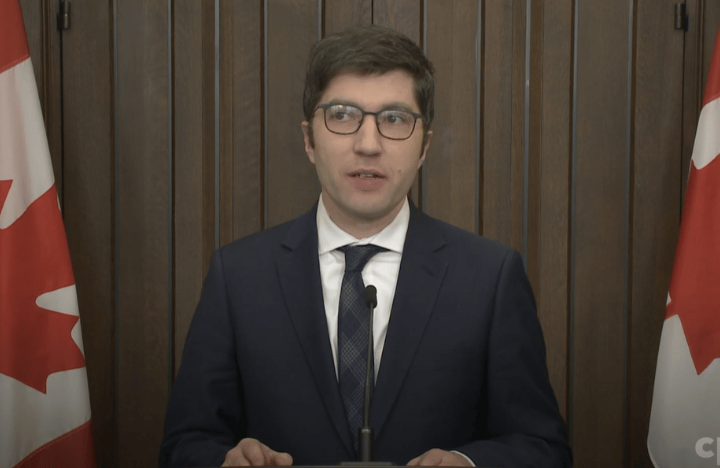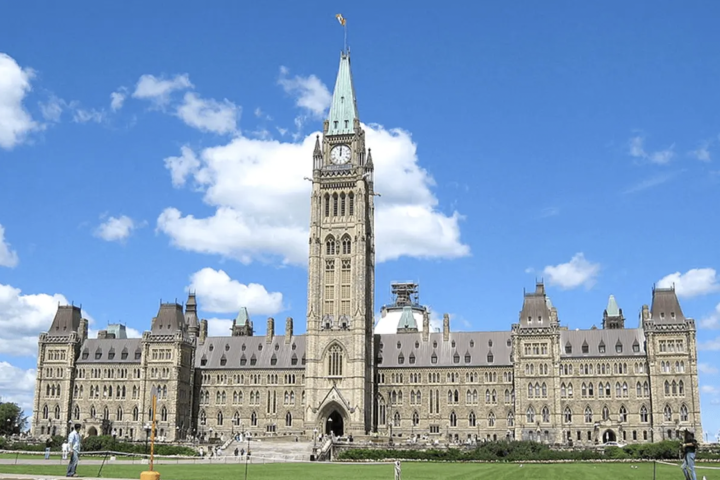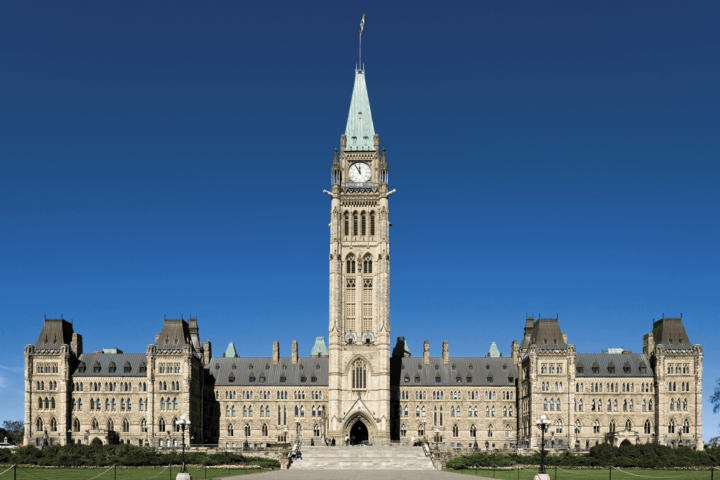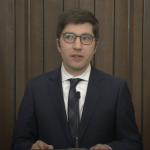TORONTO — Canadian voters have spoken and chose to give the Liberal Party a fourth term in power as Mark Carney maintained his hold on the Prime Minister’s office.
Whether Carney’s government is a minority or majority will remain unanswered until later on April 29 — following the Register’s press deadline — as Elections Canada paused the counting of 2025 federal election special ballots for several hours overnight. The Liberals had secured 168 seats, short of a majority government.
The Conservative Party has secured or is ahead in 144 seats; the Bloc Québécois has netted or is leading in 23 seats, and the NDP’s parliamentary presence is projected to be, at most, seven seats.
Political scientist Charles Smith, who teaches at St. Thomas More College in Saskatoon, remarked on the scale of how Canadian politics shifted in just four months. The Liberals were on their way to electoral obliteration until Justin Trudeau’s resignation on Jan. 6, the Conservatives poised for a huge majority.
“To see Liberals have a quick leadership election, elect Mark Carney, who has never been elected, and now he’s just pulled off at least a minority if not majority government,” said Smith. “I mean it’s just an incredible turnaround in such a short period that it does make your head spin a little bit and certainly unprecedented in Canadian political history.”
During his victory speech from Ottawa, Carney said “my message to every Canadian is this: no matter where you live, no matter what language you speak, no matter how you voted, I will always do my best to represent everyone who calls Canada home.”
Propelled by voters who viewed relations with U.S. President Donald Trump as their chief concern, Carney repeated his line from the campaign trail that “our old relationship with the United States, a relationship based on steadily increasing integration, is over.”
For over a year, Pierre Poilievre was the prohibitive frontrunner to become Canada’s next prime minister. While he did lead his party to a gain of at least 20 seats and its highest vote share (41.4 per cent) since 1988, he stunningly couldn’t even hold on to his Ottawa-area riding which he held for two decades.
During his concession speech, Poilievre signalled he would continue championing the causes of Canadian conservatism going forward.
“Now I know that some of you might be disappointed that change did not get over the finish line tonight,” said Poilievre. “Change takes time. Most of all, it requires that we never give up because our people and our country are worth fighting for. I will never give up on fighting for everyone who stood with us today and the millions of people who voted for other parties.”
Yves-François Blanchet’s Bloc Quebecois’ seat count will diminish by at least nine seats. The electoral decline of the NDP, led by Jagmeet Singh (who will step down after losing his Burnaby Central riding), is even more dramatic. The New Democrats lost official party status after falling from 24 to seven seats.
Jacquie Newman, an associate professor of political science at King’s University College, a Catholic postsecondary institution federated with Western University in London, Ont., said it will be a “very good Parliament for Quebec” as that province and the plummet in NDP support benefited the Liberals. She mused about a possible overture that could come to the francophone province.
“It could be backing off even more from Bill C-21 and the religious symbols in Quebec,” said Newman. “But the other thing we have to remember is that the more the federal government focuses on Quebec, the more likely it is to antagonize and alienate the Prairie provinces.”
Newman noted that Carney in his speech did strike “a voice of unity” and a desire to collaborate.
“It makes sense, particularly at the moment when Conservatives will not have a leader in Parliament,” said Newman.
Smith suggested that there will be pressing challenges for Carney to contend with as he seeks to hold onto the power given to him by traditional NDP and Bloc voters. Multiple NDP seats also flipped to the Conservatives.
“One of the questions I would have is whether (the shift) is permanent or will we see a rebound back to sort of quote-unquote normal in the next election,” said Smith. “(Another) issue is about how the new government will deal with Donald Trump, how they’ll deal with tariffs, how they’ll deal with the relationship with the United States.
“(Also) how (will) they deal with some of the big policy questions on the economy, productivity, questions on unemployment, possible recession down the road. All of that is going play an important role. Mark Carney is becoming Prime Minister at a very tenuous time.”
Quinton Amundson is a staff writer for The Catholic Register.


